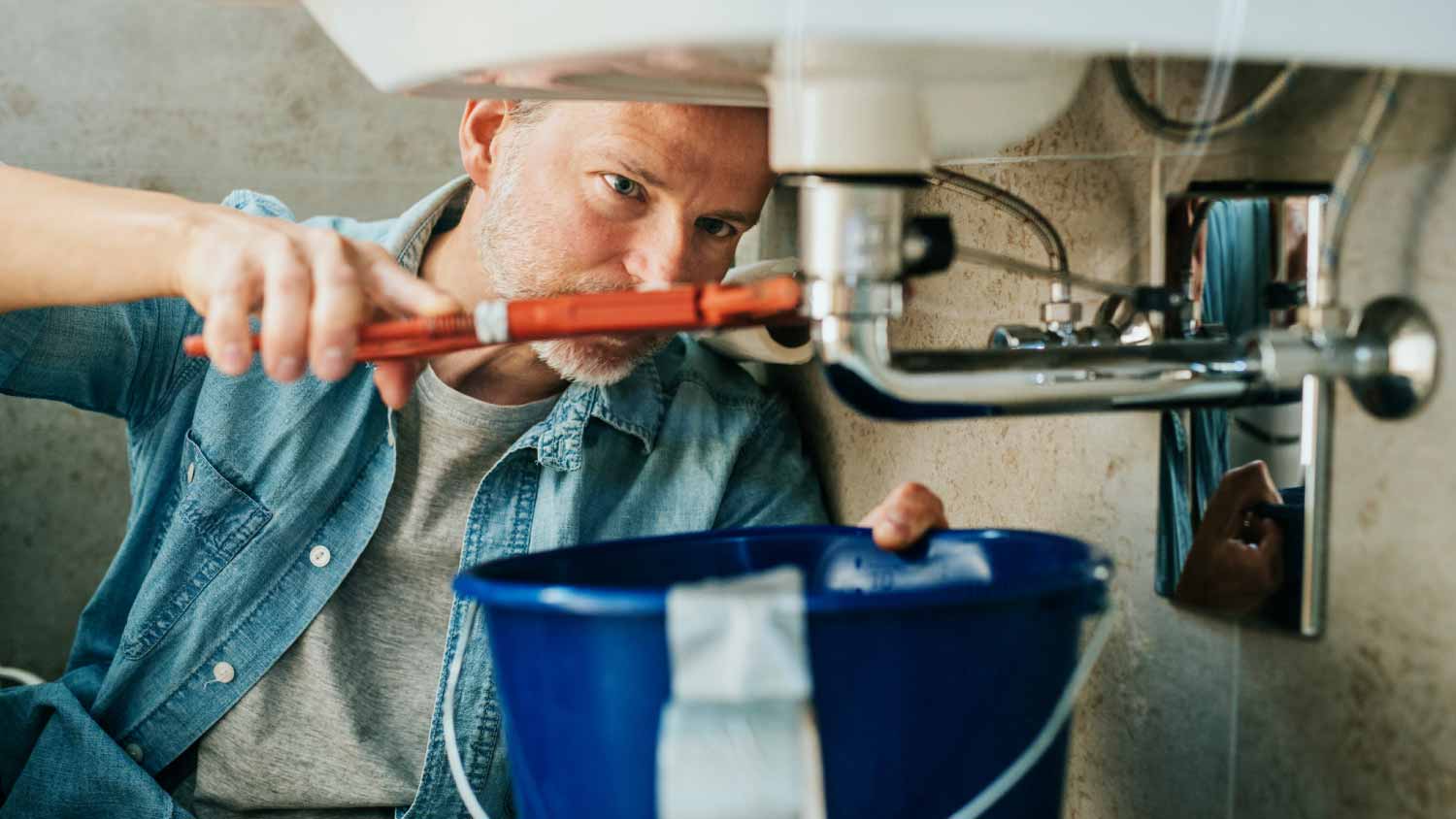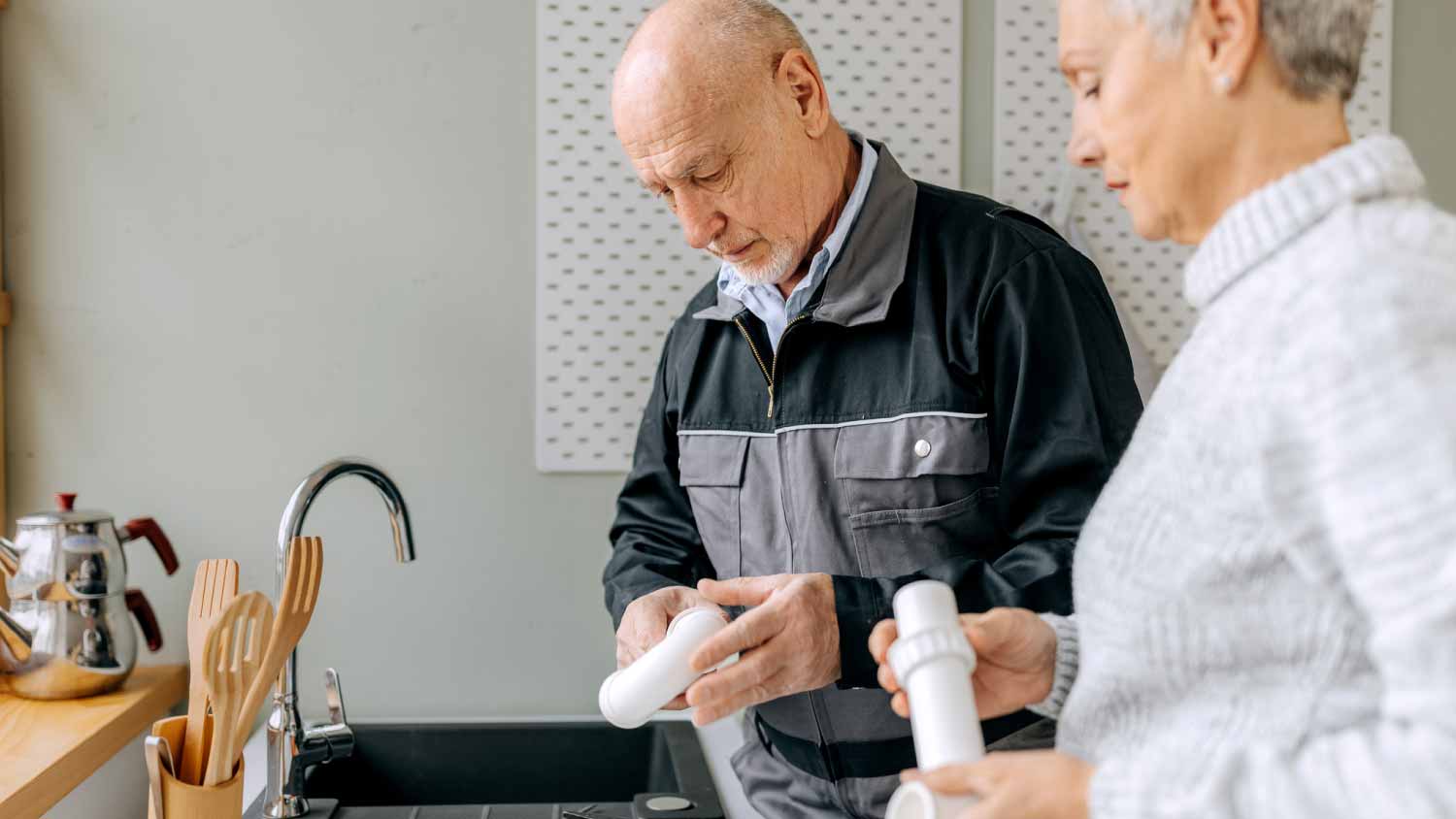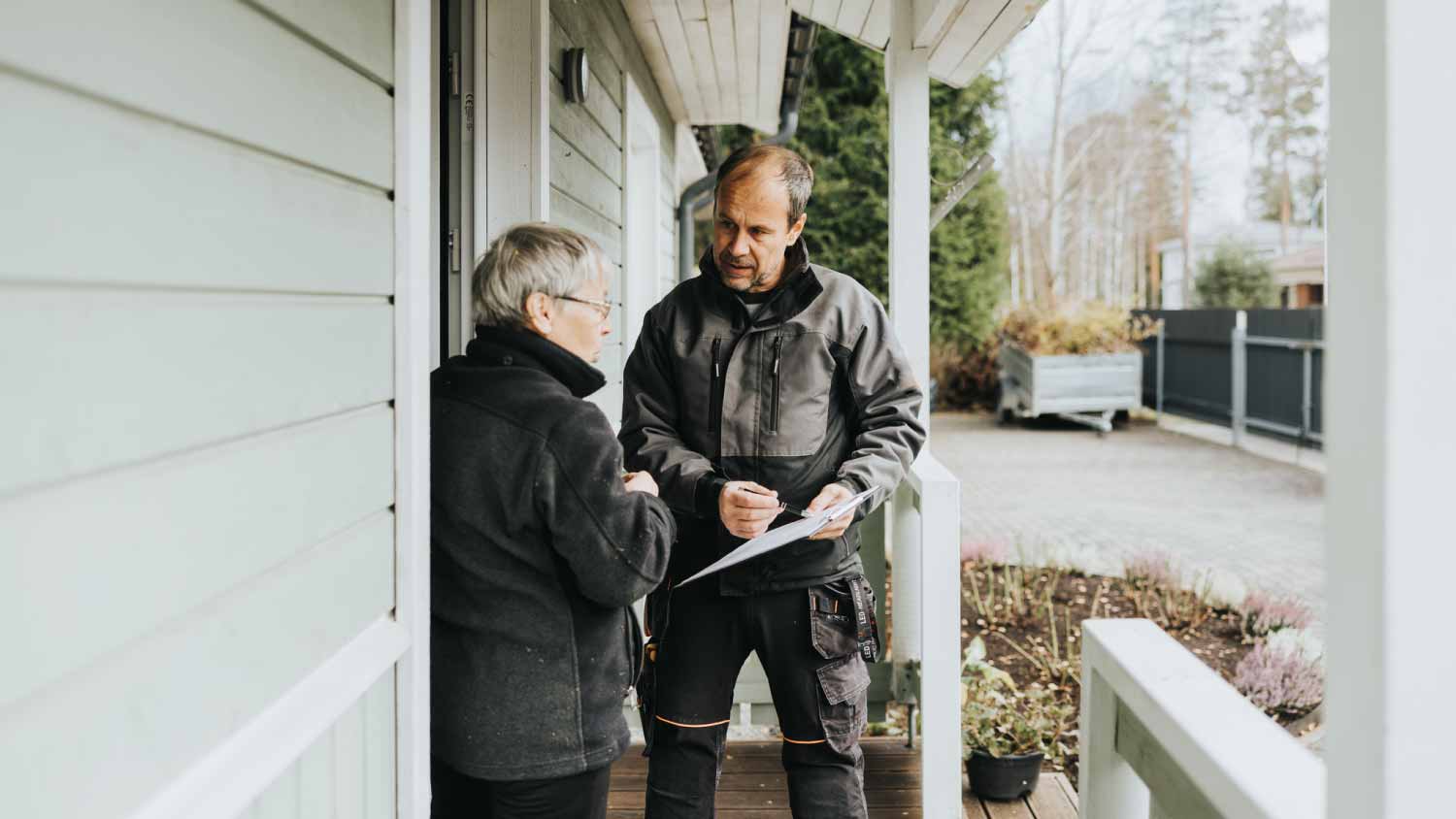What to Do if a Plumber Caused Water Damage in Your Home
When your pipe dream becomes a nightmare


Before you do anything else, take steps to mitigate the damage, like shutting off your water main or individual fixture.
Take photos of the damage and have another pro inspect it to confirm that your original plumber is to blame.
Try to work with the plumber first, but resort to an insurance claim or legal action if you’re not getting the desired resolution.
When you call in a plumber to fix an issue, the last thing you expect is an even worse issue in its place—but, unfortunately, it does happen. If a plumber caused water damage to your home, there are a few things you need to do to get a timely resolution that doesn’t end up costing you more money.
1. Mitigate the Damage
Your first order of business is to mitigate the water damage, and you can do this by shutting the water in your home to stop the leak. If the water is coming from a single fixture, try shutting off the speedy valve that supplies water to that fixture. If that doesn’t work, head to your water main and shut the valve there. The water main is usually in the crawl space or basement or in a utility closet.
Once the water is off, dry out the area as best you can if it’s safe to do so. Start by removing puddles with a shop vacuum, drying the area with towels, and running a blower fan for 24 to 72 hours.
2. Document the Damage
Once you’ve stopped the leak from worsening, you should take photos of the damage. If possible, take pictures of the plumbing lines in the walls where the leak is coming from. Make sure you also get multiple angles showing all of the damaged building materials, including drywall, insulation, flooring, and cabinetry. Note what type of water damage you believe it is, as well.
3. Contact Another Plumber for an Inspection

Next, reach out to another local plumber to complete an inspection of the damage. They can confirm whether or not the original plumber’s negligence is what caused the damage in the first place.
4. Notify Your Plumber
Your plumber is liable for damages caused by their actions, so your next step will be to let the original plumber know about the issue. Take a calm approach to the conversation and remain as objective as you can. It may be difficult not to let the conversation get heated, but do your best to stay neutral, as confrontation can only make matters worse.
Your plumber will likely ask to come look at the damage. You can let them do so, and you can share the results from your third-party inspection, as well.
5. Notify Your Insurance Company
Contact your insurance company to report the damages, and send over any documentation you have, including photos and your plumbing inspection report. This is an important step even if you don’t end up filing a claim, as you’ll establish a paper trail in case you run into any related damage in the future that does lead you to file a claim.
6. Get Repair Estimates
Contact at least two water damage restoration companies near you to write up estimates for the necessary repairs. Get a third estimate if those two aren’t within 10% of each other.
7. Ask Your Plumber to Pay for the Damages

Since your plumber is liable for any damages they cause, contact your plumber and ask them to pay for the repairs using the water damage restoration costs quoted in your estimate. Your plumber may offer to complete the repairs themselves or hire a company they’re familiar with, but it’s best to insist on hiring a water damage restoration company you choose.
8. File an Insurance Claim or Take Legal Action
If your plumber refuses to pay for the repairs and get the water damage restoration process underway, you can file a claim against their liability insurance. Ideally, you’ll have their insurance information available before you hire them. Your homeowner’s insurance provider may be able to help you file the claim. Another more extreme option is to hire a lawyer and take legal action to sue for the damages.
Frequently Asked Questions
Plumbers can be held liable for their work for anywhere from a year to six years, depending on where you live, but in most states, premises liability lasts for three to four years. You can contact your state’s licensing board to find out how long your plumber is liable. Your local building department or a consumer protection agency in your area can also confirm the timeline for you.
To file a claim against a plumber, you’ll need to contact their liability insurance company. You can ask your plumber for information about their insurer, or you can refer to the documentation you collected before you hired them. Let the company know you need to file a claim, and they’ll provide you with the next steps. Alternatively, you can ask your homeowner’s insurance company to help you file.














